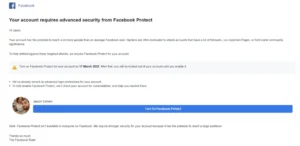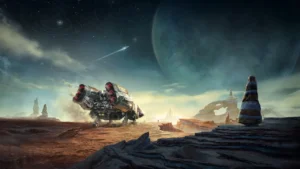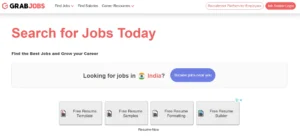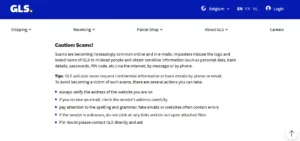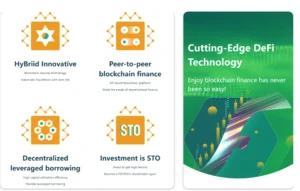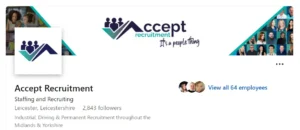In an era where technology continues to reshape industries, the screenwriting landscape has not been immune to disruption. AI-powered platforms, such as Instant Scripts, have emerged as innovative tools that generate draft screenplays using advanced natural language processing techniques.
This article presents an objective analysis of Instant Scripts, exploring its benefits, limitations, and the future of AI-assisted screenwriting.
As the intersection of technology and storytelling evolves, the potential for collaborative workflows and specialized AI systems promises an exciting and empowering future for the screenwriting industry.
The Impact of AI on Screenwriting
The article provides an in-depth analysis of the impact of AI on screenwriting, addressing concerns and evaluating the quality of AI-generated scripts.
AI's influence on the creative process and its role in script development have been the subject of much speculation and debate.
While AI-powered platforms like Instant Scripts offer convenience and efficiency in generating draft screenplays, questions have been raised about the authenticity and originality of AI-generated scripts.
An experiment comparing human-written and AI-generated scripts revealed that AI scripts often lacked nuance, depth, and creativity when compared to their human counterparts. However, it is important to note that AI is still far from matching human-level understanding of narrative complexity.
The financial considerations and regulations surrounding the screenwriting industry also prioritize human talent over AI outputs.
Despite this, AI tools can serve as valuable resources for experimentation, prototyping, and non-writing tasks.
The future of AI-assisted screenwriting holds the promise of more intuitive user interfaces, specialized AI systems tailored for specific genres, and collaborative workflows that enable joint outlining and writing between humans and AI.
As AI continues to advance, it may offer richer characterization and complex plot analysis, ultimately acting as a true collaborator with human writers.
The integration of AI and human creativity will enhance the art and business of content creation, offering productivity gains, inspiration, and feedback to screenwriters in their pursuit of innovative storytelling.
Understanding AI-Powered Screenwriting Tools
AI-Powered screenwriting tools provide a transformative approach to script development, leveraging advanced natural language processing techniques to generate draft screenplays. These tools have brought about a paradigm shift in the screenwriting process, offering innovative ways for storytellers to create and explore narratives.
However, the rise of AI in screenwriting also raises ethical implications. As AI-generated scripts lack the nuance and creativity of human-written scripts, there is a concern that AI may stifle original ideas and limit the diversity of storytelling.
On the other hand, AI has the potential to democratize the screenwriting process by providing accessible tools for aspiring writers who may not have traditional industry connections. By lowering barriers to entry, AI can empower a wider range of voices and perspectives in the world of storytelling.
The role of AI in screenwriting is a complex and evolving topic that requires careful consideration of both its benefits and limitations.
Evaluating the Quality of AI-Generated Scripts
Despite concerns about the legitimacy and quality of AI-generated scripts, an experiment comparing human-written and AI-generated scripts revealed that the AI scripts lacked nuance, depth, and originality compared to their human counterparts. The assessment of AI in screenplay quality highlighted several limitations.
Character interactions in AI scripts were found to be stilted and lacking complexity, while evocative descriptive passages were absent. In contrast, human scripts displayed superior storytelling techniques and creativity. These findings suggest that AI is still far from matching human-level understanding of narrative complexity.
Financial considerations also favor hiring experienced screenwriters, as regulations and quality control prioritize human talent. However, AI tools can still be valuable for experimentation, prototyping, and non-writing tasks. The future of AI-assisted screenwriting holds promise for more intuitive user interfaces, specialized AI systems for specific genres, and collaborative workflows between humans and AI.
While AI shows potential, it is clear that human writers remain essential for creating high-quality screenplays.
Pros and Cons of AI in the Screenwriting Industry
Are there any significant advantages, or potential drawbacks, to incorporating AI into the screenwriting industry?
The use of AI in the screenwriting industry has sparked debate regarding its advantages and limitations. While AI-powered platforms like Instant Scripts offer convenience and cost-effectiveness, they are not without their drawbacks.
AI scripts often lack the nuance, depth, and originality found in human-written scripts. Character interactions may appear stilted and lack complexity, and descriptive passages may lack evocative language. However, concerns about AI stifling original ideas may be overblown, as AI still cannot match human-level understanding of narrative complexity.
Financial considerations also make hiring experienced screenwriters more cost-effective. Regulations and quality control prioritize human talent over AI outputs. Nonetheless, AI tools can be valuable for experimentation, prototyping, and non-writing tasks.
The future of AI in screenwriting holds promise for more intuitive user interfaces, specialized AI systems for specific genres, collaborative workflows, and the evolution of AI screenwriting assistants. Overall, AI offers productivity gains, inspiration, and feedback to screenwriters, while a balanced digital-human approach enhances the art and business of content creation.
Shaping the Future of Screenwriting With AI
The integration of AI technologies in the screenwriting industry is paving the way for a transformative future. This revolutionizes the way stories are crafted and enhances the creative process through the utilization of advanced computational models. AI assisted creativity and AI driven narrative innovation are reshaping the landscape of screenwriting, offering new possibilities and opportunities for storytellers.
By leveraging AI tools, screenwriters can access intelligent algorithms that can analyze vast amounts of data, generate ideas, and provide valuable insights. These tools assist in brainstorming sessions, character development, plot structuring, and even dialogue generation. The collaboration between human creativity and AI assistance allows for the exploration of uncharted territories, pushing the boundaries of storytelling.
As AI technologies continue to evolve, we can expect even more sophisticated and intuitive tools that empower screenwriters to explore their imagination and create truly groundbreaking narratives. The future of screenwriting with AI is bright, offering a new era of storytelling possibilities.
The Collaborative Potential of AI and Human Writers
AI and human writers can join forces to unlock the collaborative potential of creating innovative and compelling narratives. The combination of artificial intelligence and human creativity opens up a world of possibilities in the field of storytelling. AI tools have the potential to assist human writers in various ways, including generating ideas, providing feedback, and enhancing productivity. By leveraging the analytical capabilities of AI and the imaginative skills of human writers, new and exciting storytelling techniques can be developed.
However, it is important to consider the ethical considerations that arise from this collaboration. As AI becomes more involved in the creative process, questions of authorship and intellectual property rights come into play. Additionally, the potential applications of AI in storytelling raise concerns about the impact on employment in the industry. Striking a balance between harnessing the power of AI and preserving the unique perspective and creativity of human writers is crucial.
Frequently Asked Questions
How Does Ai-Powered Screenwriting Impact the Creative Process of Screenwriters?
Exploring AI's impact on the creative process, analyzing the effectiveness of AI-generated scripts reveals limitations in storytelling techniques, character interactions, and originality. AI-powered screenwriting offers productivity gains but cannot match human-level understanding of narrative complexity.
Are Ai-Generated Scripts Able to Capture the Emotional Depth and Complexity of Human-Written Scripts?
AI-generated scripts have limitations in capturing the emotional depth and complexity of human-written scripts. While AI-powered screenwriting tools offer productivity gains, the creative process still requires the expertise and nuanced understanding of human screenwriters.
Can Ai-Powered Screenwriting Tools Replace the Need for Human Screenwriters?
AI-powered screenwriting tools cannot replace the need for human screenwriters. While they offer productivity gains and feedback, AI lacks the creativity and emotional depth of human writers. The future lies in symbiotic collaboration between AI and humans in advancing storytelling.
What Are Some Potential Ethical Concerns Regarding the Use of AI in Screenwriting?
Ethical considerations arise when employing AI in screenwriting. Potential implications include AI-generated scripts lacking nuance and originality, stifling human creativity, and prioritizing cost-effectiveness over human talent. Striking a balance between AI assistance and human creativity is crucial.
How Can Ai-Assisted Screenwriting Enhance the Diversity and Inclusivity of Storytelling in the Industry?
AI-assisted screenwriting can enhance the diversity and inclusivity of storytelling by providing innovative tools for representation. AI-driven narratives can offer fresh perspectives, amplify underrepresented voices, and break traditional storytelling barriers, fostering a more inclusive and dynamic industry.
Conclusion
In conclusion, the emergence of AI-powered screenwriting tools like Instant Scripts has undoubtedly transformed the industry, offering increased productivity and inspiration to screenwriters.
However, concerns surrounding the ability of AI to match the narrative complexity exhibited by human writers, as well as financial considerations and quality control regulations, highlight the limitations of solely relying on AI-generated scripts.
Nonetheless, the future holds great potential for advancements in AI technology, including specialized systems for specific genres and collaborative workflows between humans and AI, paving the way for an exciting and empowering future at the intersection of technology and storytelling.




